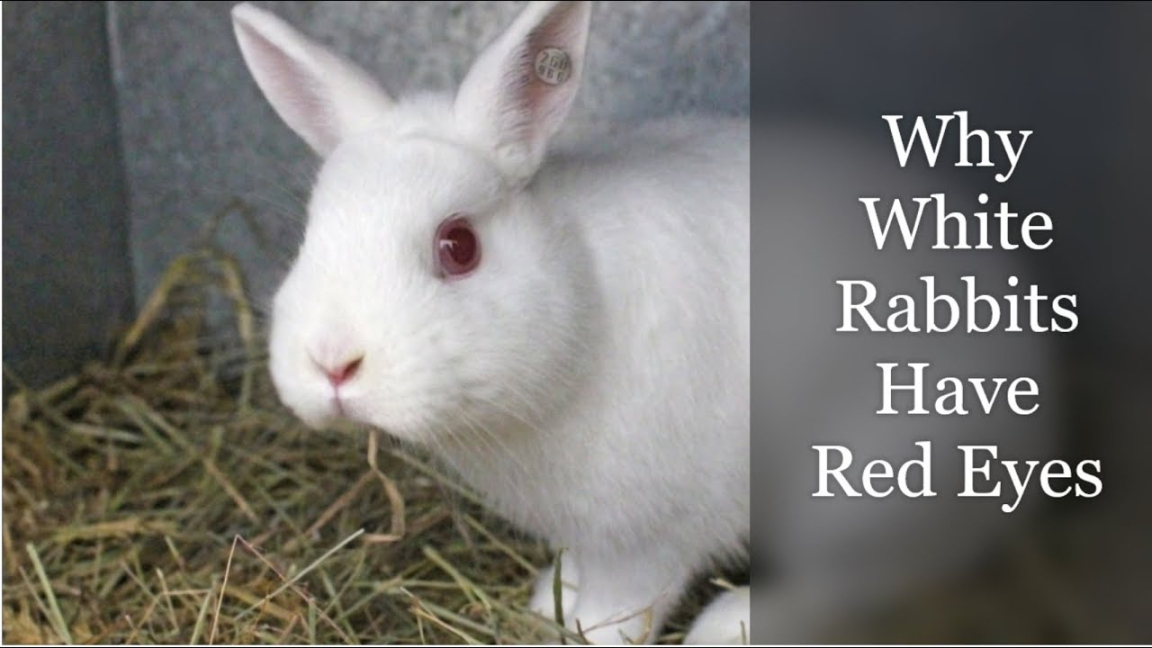Why Do White Rabbits Have Red Eyes?
White rabbits with red eyes may appear unusual and even mysterious to some people. While most rabbits have dark-colored eyes, the red-eyed variety is not uncommon. The reason behind this intriguing phenomenon lies in the unique genetics and pigmentation of these rabbits. In this article, we will explore the science behind why white rabbits have red eyes.

Albinism and Lack of Pigmentation
White rabbits with red eyes are often associated with a condition called albinism. Albinism is a genetic disorder characterized by the absence of melanin, the pigment responsible for giving color to hair, skin, and eyes. In the case of white rabbits, their lack of pigmentation results in the absence of any color, giving them a distinctive white appearance. However, albinism alone does not explain why their eyes appear red.
The Role of Blood Vessels
Behind the red eyes of white rabbits lies another fascinating factor: the presence of blood vessels. The red coloration is a result of light reflecting off the blood vessels in the rabbit’s eyes. In rabbits with normal pigmentation, the melanin in their iris absorbs and blocks the passage of light, causing their eyes to appear dark. However, in the absence of melanin, the light passes through the iris. As a result, it reflects off the blood vessels located at the back of the eye, creating a red glow.
The Dispersion of Light
Another key factor contributing to the red appearance of the eyes in white rabbits is the dispersion of light. When light enters the eyes, it is scattered and dispersed by various structures within the eye, including the cornea and lens. In rabbits with dark eyes, the melanin present in their iris absorbs the scattered light, preventing it from reflecting back out. Conversely, in white rabbits with red eyes, the absence of melanin allows the scattered light to reflect off the blood vessels in the eye, resulting in a red glow.
Frequently Asked Questions (FAQs)
1. Are all white rabbits born with red eyes?
No, not all white rabbits are born with red eyes. While the majority of white rabbits exhibit red-eyed albinism, there are some individuals who may have other eye colors. This can be due to the presence of specific genes that influence eye pigmentation.
2. Are red-eyed white rabbits more prone to eye health issues?
Red-eyed white rabbits are not inherently more prone to eye health issues compared to rabbits with normal eye pigmentation. However, their lack of pigmentation leaves their eyes more susceptible to sunlight and other environmental conditions. It is important to provide adequate shade and protection to prevent any potential eye damage.
3. Can white rabbits with red eyes see normally?
Yes, white rabbits with red eyes can see normally. Despite the absence of pigmentation, their visual system functions the same as rabbits with darker eyes. However, due to their albinism, they may have heightened sensitivity to light and should be provided with appropriate lighting conditions.
4. Can red-eyed white rabbits pass on their eye color to their offspring?
Yes, red-eyed white rabbits can pass on their eye color to their offspring. The genetics of eye color inheritance in rabbits is complex, involving multiple genes. While the offspring of red-eyed white rabbits are more likely to have red eyes, there is still a possibility of variations in eye color depending on the genes inherited from both parents.
The red eyes of white rabbits are a result of a combination of factors, including albinism, the absence of melanin, and the presence of blood vessels. The lack of pigmentation allows light to pass through the iris and reflect off the blood vessels, resulting in the distinctive red glow. While these rabbits may appear unique and captivating, it is essential to provide them with proper care and protection to ensure their overall health and well-being.
Related Articles…
Copyright Notice:
All images featured on this site are sourced from the internet, copyrights belong to respective owners. Should you own any image and require it to be removed, please contact us.